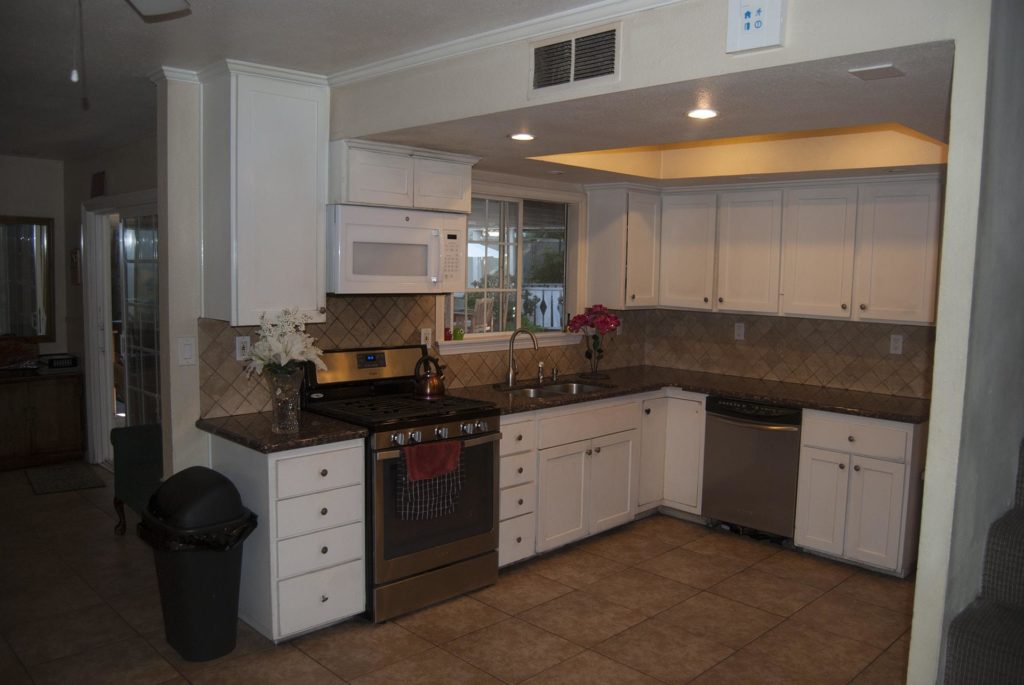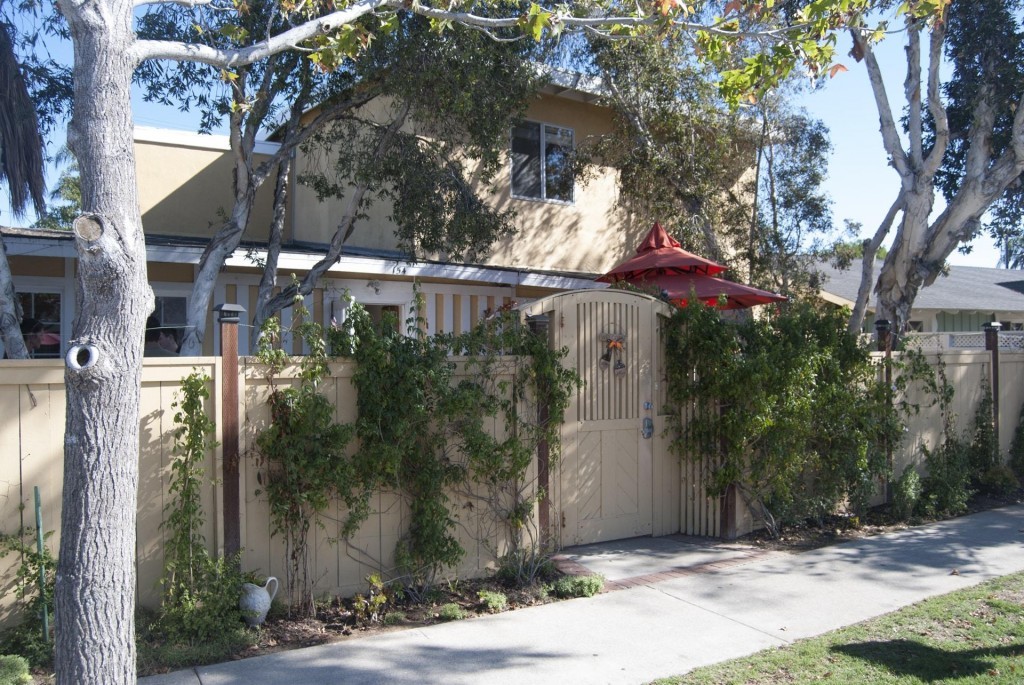Outpatient Treatment for Substance Abuse Disorders
Although most drug and alcohol rehab clients are admitted to an inpatient program for intensive treatment, it’s not the only available option. For those who do not require the same level of treatment as inpatient care, outpatient programs provide a more flexible alternative.
If you are new to the idea of addiction rehab, you may not know the difference between treatment types or how to choose the best program for your needs. On this page, we’ll take a look at different types of outpatient rehab in Orange County, when they’re used, who is eligible to participate, and what kinds of benefits clients can expect.
WHAT IS OUTPATIENT REHAB?

Outpatient rehab is a form of treatment that allows clients to live off-site and maintain a flexible, self-directed therapy schedule. At Yellowstone Recovery, outpatient treatment commonly serves as aftercare for clients who have completed inpatient care (90 days of residential treatment) at our drug and alcohol rehab in Orange County.
Clients in outpatient treatment are required to attend three group sessions each week. Clients are also required to attend an individual session every other week, during which they turn in assignments and work to complete the objectives of their treatment plan. Participation in a 12-step recovery program is also required. Each client must attend at least four meetings per week and be actively working the 12 steps with a sponsor.
OUTPATIENT TREATMENT PROGRAM TYPES
To meet the needs of a diverse client base, rehab centers in Orange County commonly offer two different types of outpatient treatment. The first type is simply called “outpatient,” and it’s meant to serve as extended care after inpatient treatment. The other type, known as an “intensive outpatient program” or “IOP,” is designed to provide a more rigorous form of treatment to those who haven’t gone through inpatient care and don’t require it.
Regardless of the type of treatment, both outpatient and IOP programs rely strongly on the use of evidence-based cognitive behavioral therapy techniques to achieve recovery goals. All group and individual therapy sessions are facilitated by certified drug and alcohol counselors. Each session takes place in the evening, allowing clients to work during the day and support themselves financially.
The group sessions in outpatient programs are aimed at processing daily living with peers in recovery. Members of the group can provide feedback to one another and share methods that have worked for them. Individual sessions are designed to help each individual continue to work on the core issues they identified during inpatient treatment.
THE DIFFERENCE BETWEEN OUTPATIENT AND INPATIENT PROGRAMS
Outpatient and inpatient programs differ significantly. The most obvious difference between the two types of treatment is the fact that inpatient clients reside on-site in a residential treatment home, while outpatient clients are allowed to live at home with family or in a sober living facility. Inpatient programs are also far more immersive and restrictive than outpatient programs, and inpatient clients must commit to several months of full-time recovery work.
These two program types are also meant for different types of clients. Inpatient treatment is designed for those with moderate to severe addictions who need medical detox and strong external support. Outpatient treatment, on the other hand, is designed for individuals who have completed inpatient care or whose addictions aren’t strong enough to require detox.
OUTPATIENT TREATMENT VS. INTENSIVE OUTPATIENT PROGRAMS (IOP)
Despite their similar sounding names, outpatient treatment and intensive outpatient programs have several key differences. As mentioned previously, the primary difference between the two treatment options is that outpatient treatment is usually used as extended care for former inpatient clients, while an intensive outpatient program is an accelerated recovery program option for any client who does not need detox or inpatient care.
At our alcohol and drug rehab in Orange County, outpatient care focuses on continuing work in 12-step meetings and therapy sessions, as well as preparing clients for life after rehab. Our intensive outpatient program, on the other hand, is more structured and begins at square one: educating clients on the nature of addiction and introducing them to counseling techniques. IOP clients are also required to attend more therapy sessions than those in traditional outpatient treatment.
THE MANY BENEFITS OF OUTPATIENT DRUG REHAB

Outpatient treatment is a vital part of recovery for many clients. The longer the exposure to treatment, the more likely the client will be to achieve long-term sobriety. Additional treatment offers a greater understanding of addiction and keeps clients in a constant practice of recovery. It demands some work on the client’s part, which should come easily after completing inpatient treatment. Outpatient treatment is a way for clients to solidify their foundation before they return to the “real world” and are completely responsible for their own sobriety.
Outpatient programs of all kinds provide unique benefits that inpatient programs don’t offer. The following are just a few of the many advantages of choosing a standard or intensive outpatient program.
More Autonomy During Treatment
Clients in sober living have many privileges they did not have while in extended care. Clients can choose their own meetings, use passes for extended time away, and benefit from a later curfew. The outpatient treatment and sober living requirements mirror each other so that clients have a single cohesive set of rules.
With regard to accommodations, clients have the option of living at home with their families and traveling for outpatient group therapy or staying with us in sober living for added support. Wherever clients choose to live, they have the freedom to come and go as they please. As long as they are meeting all the requirements of outpatient treatment, they are considered compliant with the program.
Ability to Continue Working and Managing Normal Responsibilities
Because outpatient treatment at our Orange County rehab is so much less restrictive than inpatient treatment, clients are able to continue working at their regular jobs and meet all of their normal obligations. Continuing to earn an income during treatment can make it easier to manage the financial aspects of rehab.
More Time with Family and Friends
The flexibility of the outpatient treatment schedule also allows clients to spend more time with supportive family and friends during drug and alcohol rehab. Maintaining healthy relationships with others is a key aspect of recovery success.
Shorter Program Duration
While inpatient programs can last several months or even years, outpatient programs tend to be much shorter. Intensive outpatient programs, in particular, use an accelerated schedule to get clients through rehab and back to everyday life in a timely manner.
Strong Focus on the Future
The main focus of outpatient care is to prepare clients for a sober, self-sufficient future. Staff and counselors help clients learn valuable new life skills, seek out educational opportunities, and find gainful employment.
Easy Transition from Treatment Center
Outpatient programs are designed to provide a smooth transition from inpatient treatment into the next phase of care. Enrollment is easy, and staff members walk clients through the process step by step.
Affordable Cost
Because they require fewer resources and less supervision than inpatient treatment, both types of outpatient treatment generally have a lower cost than an inpatient program. Yellowstone Recovery also offers financing options to help you pay for your treatment.
DO YOU NEED HELP TO FIGHT ALCOHOLISM OR DRUG ADDICTION? CONTACT US TODAY
If you or loved ones are struggling with an addiction, our professional drug and alcohol rehab programs in Orange County, CA can help. If you don’t require medical detox or the immersive experience of inpatient care, you may be an ideal candidate for our intensive outpatient alcohol treatment or outpatient drug treatment program. If you’ve recently completed an inpatient program, outpatient alcohol rehab/outpatient drug rehab can be a great way to continue your recovery work.
Locations We Serve
Our Orange County rehab is designed to offer people from all walks of life the quality care and treatment they need to get and stay sober, for life. We know that accessing the right professional help is vital to overcoming addiction, which is why we serve a large number of locations across Southern California, including:
- Costa Mesa
- Santa Ana
- Irvine
- Anaheim
- Fullerton
- Laguna Beach
- Mission Viejo
To learn more about our outpatient treatment options or start the enrollment process, call our friendly staff today at (888) 418-4188.
BACKRequest More Information
Start your recovery today.
- Treatment Options
- Program Curriculum
- Program Services
Why Choose Yellowstone?
Low Cost Pricing
Financing Available
PPO Insurance Accepted
Provide Complete
Continuum of Care








